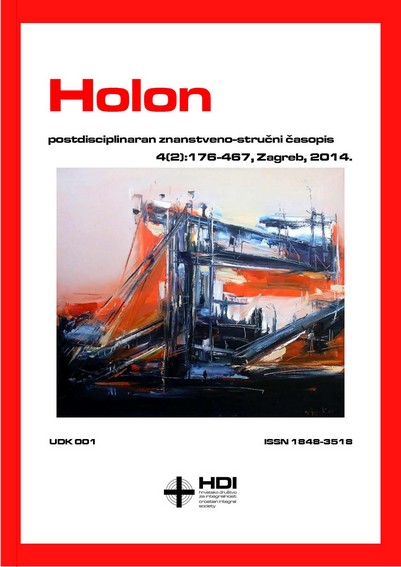Tehno-scientia sexualis: što nakon "Povijesti seksualnosti"?
Techno-scientia sexualis: What comes after The History of Sexuality?
Author(s): Žarko PaićSubject(s): Philosophy
Published by: Hrvatsko društvo za integralnost
Keywords: sexuality; technology; discourse; dispositive; science; biopolitics; power
Summary/Abstract: The intention of this article is to examine how and why Foucault comes to a critique of the modern subject, starting from the idea that the politics of the body inscribes itself into the relationships of historical complexes of power from antiquity to modern times. Does this have important consequences for the end of the Enlightenment era illusion of progress in the consciousness of freedom, which, as we know, is the basis of Hegel's speculative dialectic of history, since the basic hypothesis of The History of Sexuality is beyond the discourse of rationalism and repressive de-sublimation of the capitalist order? If this hypothesis is correct in reality, then the cultural differences in historical-epochal sense between antiquity, the Middle Ages and modernity in the West manifest only as differences in the technology of sexuality and the aesthetics of existence, that is, in the understanding of freedom and desire, and the differences between the West and the Other (the so-called non-Western cultures such as India, Africa, Japan, China) become only differences with regard to the Same (the technologies of sexuality in a variety of forms), but not the possibilities of that which can be an alternative to the West. In other words, if the West is the only one with the idea of love and sexuality, what, then, is left of the East today? In the lecture “Sexuality and power”, given in 1978 in Tokyo, Foucault showed that historically and genealogically a difference in the understanding of the body in antiquity and Christianity, paradoxically, is not the difference between ecstasy and asceticism, agon and agony, freedom and obedience, but the difference between the two types of discipline in the history of the relationships to sexuality. In short, the article raises the question about the end of the history of sexuality in the pronouncement of the power of the technology that cancels social and cultural differences by reducing them to "lifestyles”, and instead of "power”, the body itself, as a bio-political construction of the techno-science (techno-scientia sexualis) becomes the new power that regulates relations between people in the societies of control today. Is not the problem of the entire construction of Foucault's genealogy/epistemology of power in the fact that the history of sexuality is actually, perhaps, only a means to another end – biopolitics as a technology for the control of life itself?
Journal: Holon
- Issue Year: IV/2014
- Issue No: 2
- Page Range: 220-258
- Page Count: 39
- Language: Croatian

